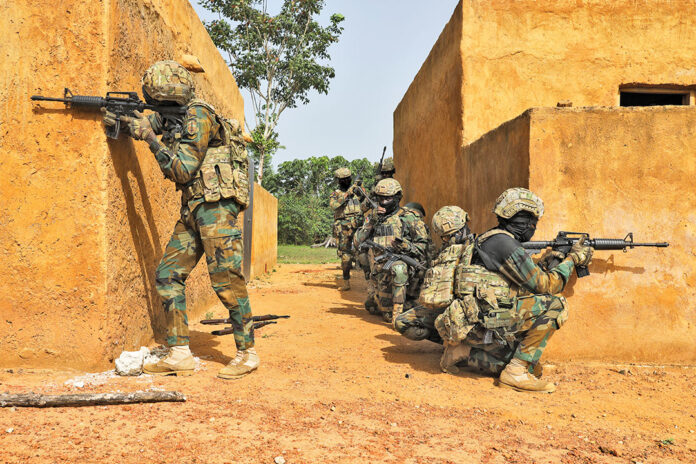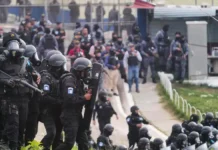Written by Lisa Murimi
While much of West Africa grapples with persistent terrorist violence, Ghana has stood out as a beacon of stability.
Despite its proximity to high-risk neighbours like Burkina Faso, Mali, and Nigeria — where groups like Boko Haram and Islamic State in West Africa (ISWAP) operate — Ghana has avoided terrorist attacks. This is no accident, but the result of deliberate, strategic policymaking.
In 2020, Ghana launched a comprehensive counter-terrorism framework built on four key pillars: prevent, pre-empt, protect, and respond.
These principles guide coordination among various agencies including the Ghana Police Service, Immigration Service, Armed Forces, and National Intelligence Bureau.
Experts in international security say Ghana’s success lies in its multi-layered approach, which combines community engagement, advanced border technology, and regional cooperation.
Community engagement has proven especially vital. Police work closely with Muslim-dominated “Zongo” communities to prevent radicalisation.
By partnering with local religious leaders, law enforcement fosters trust, encourages the reporting of suspicious behaviour, and helps reduce illegal arms circulation — with an estimated 1.1 million unlicensed weapons in the country.
At Ghana’s borders, modern systems like Immigration 360 help identify threats through biometric data and inter-agency information sharing.
These tools are essential, especially given the growing number of refugees entering from conflict-ridden neighbouring states.
Regular inter-agency training, such as 2022’s joint simulation involving security and intelligence bodies, enhances preparedness for evolving threats.
Ghana also partners regionally and internationally through initiatives like Operation Epic Guardian with the U.S.
Media collaboration is another pillar. Security agencies actively engage journalists to prevent misinformation that could cause panic or aid extremist narratives.
However, challenges remain — from limited resources to migrant pressures and the need for stronger regional coordination. Still, Ghana’s approach offers a promising model for neighbouring countries confronting terrorism in West Africa.



















